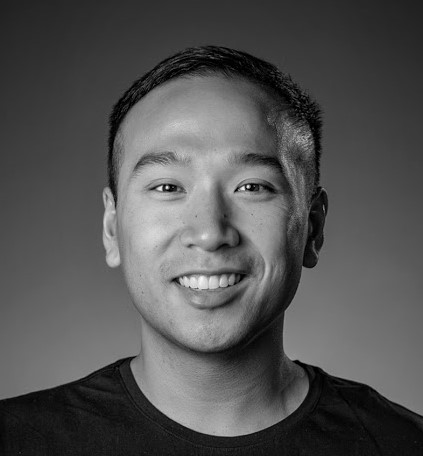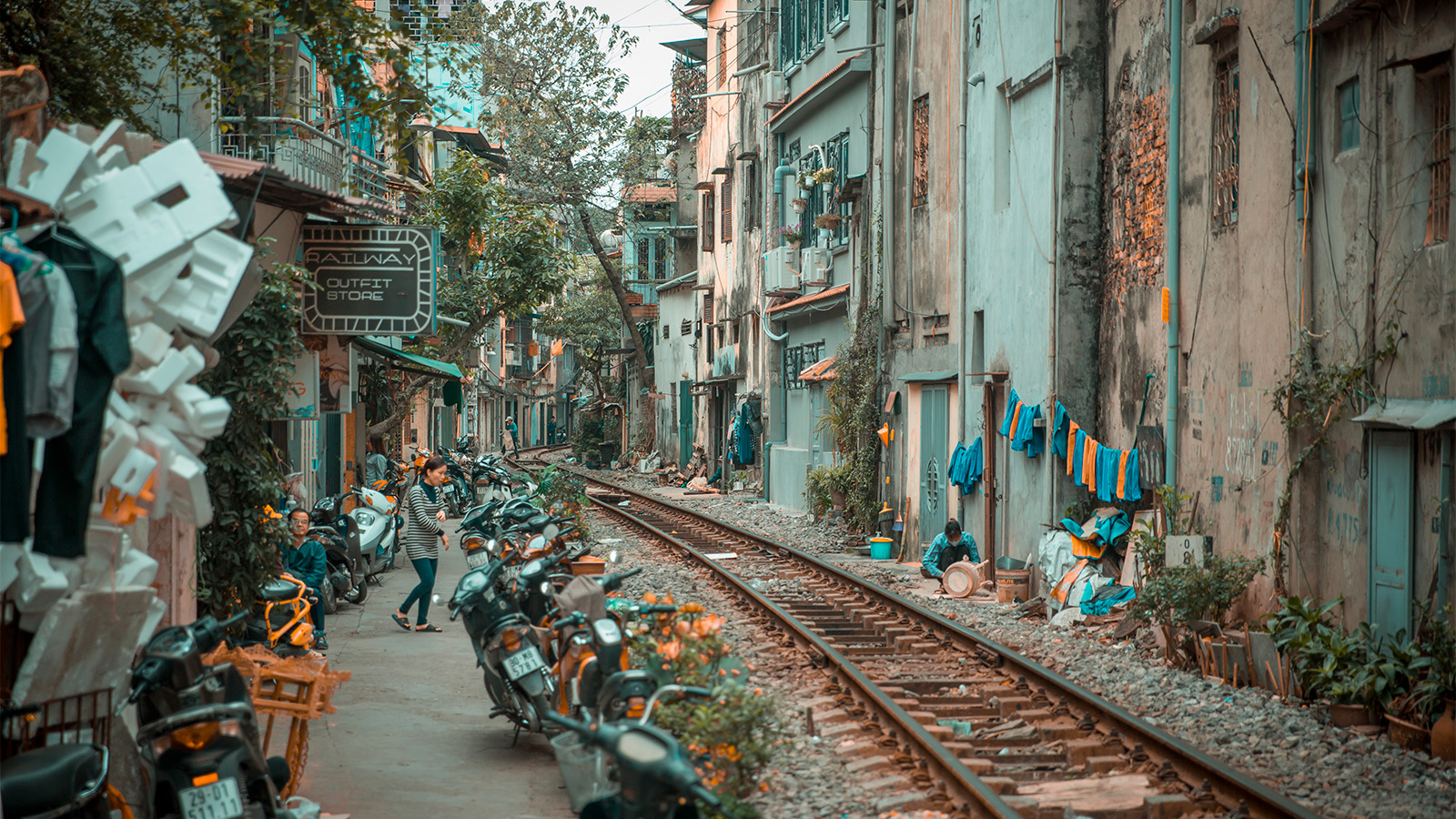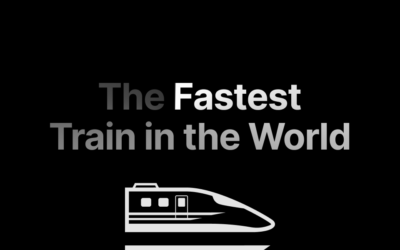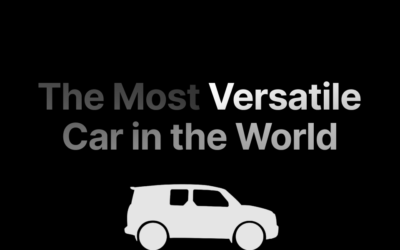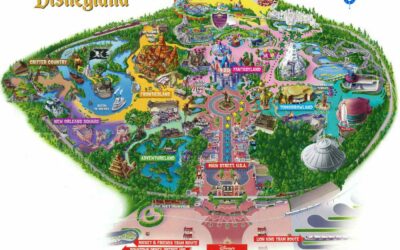From an American Living Abroad in Vietnam
A Time Without Precedence
The year is 2020, and it’s the most turbulent year in anyone’s lifetimes who’s currently alive. We are living in a fictional movie. What is transpiring today has been predicted numerous times in film, television, books, and games. It’s not the first time nor the last time humans will face a worldwide pandemic. A pandemic so defining that it is said to be the greatest challenge we have faced since WWII.
While no one alive has yet experienced something like it. It’s something that has affected every single person’s daily life on every continent of planet earth. The COVID-19 virus knows no borders, metaphorically or literally. It’s a controlled experiment on the human race and will test us in many facets. In government, it will test the response with policies and regulations in the healthcare and economic sectors. Culturally, it will test us in how each of us personally act to contribute to the cause.
Response Shaped by Culture
Different countries reacted to the pandemic in their own way. Some were more relaxed to a degree with minimal regulations (like the US) while some were more proactive, quickly responding to the threat with preventative measures such as mandatory quarantine, testing, and contact tracing. The foundation to each nation’s response lies within its culture. Culture is much more than a collective groups’ food or traditions. It’s how people see the world and each fellow human. It is something so deeply entrenched within a population that when you live within the population it’s everywhere yet invisible at the same time. Culture is simply inseparable from who we are, yet we barely take time to understand it.
The COVID-19 pandemic has opened my eyes to how the different countries could react so contrastingly due to their differences in culture. If I could condense a country’s culture into a single easily digestible adjective, the US would be “self-serving”. All of the policies from the government down to individual behavior are made with a self-serving lens. People are more concerned about their own problems than protecting the herd. It’s an us vs them mentality and some would prefer to ignore the death toll so that they can go about their normal business again.
Individual Freedom at What Cost?
The US is a society that was created by rebels who valued freedom above everything. As the country grew and flourished it became a beacon of hope built on unhinged capitalism and the free market economy. The American dream is a high-risk/high-reward system of create your own riches from nothing story. This ideology is fantasized and celebrated in the US. Historically, it’s not a society where people are necessarily concerned with the well-being of others; quite the contrary. In a nation where individualism reigns supreme, socialistic policies that benefit the whole are seen as Un-American and a threat. The typical attitude towards homelessness is “not in my backyard”. Today, this is a country with an increasing wealth disparity-the highest in 50 years. It’s created the world’s first trillionaire (who’s company pays $0 in taxes), but also at the same time has no universal health care and very few safety nets when compared to the rest of the developed world.
An Alternative Example
In contrast, the country I’m currently living in, Vietnam I would say is “collective”. Generally, people here are community-minded and watch over each other. They will sacrifice individual freedoms for the benefit of the group. It’s far from perfect, but it’s a major emerging market in Southeast Asia that is rapidly integrating into the global economy. There could not be more polar opposites at the end of the spectrum when comparing these two countries and their handling of the pandemic. The US is the largest economy in the world and most powerful country in the last century. Vietnam has been embroiled in war for much of its history (whether it be a thousand years under Chinese rule or 80 years under French rule) and has only experienced peace in the last 45 years since the fall of Saigon in 1975, signally the end of the Vietnam War (or American War in Vietnam). Evidently, one of these countries has vastly more resources and capabilities than the other.
It has to be said, Vietnam is a socialist country. Though, the government favors socialist policies and is single party with centralized control over the state, military, and media; the economy is verifiably capitalistic and relatively democratic when compared to China. Vietnam is a member of the globalized capitalist economy and rapidly modernizing. As previously mentioned, there was a war fought between the Northern communists and Southern (US backed) anti-communists and the North won after the US evacuated from Saigon. As a Vietnamese-American, this is a pre-defining moment for me that I’m learning more about.
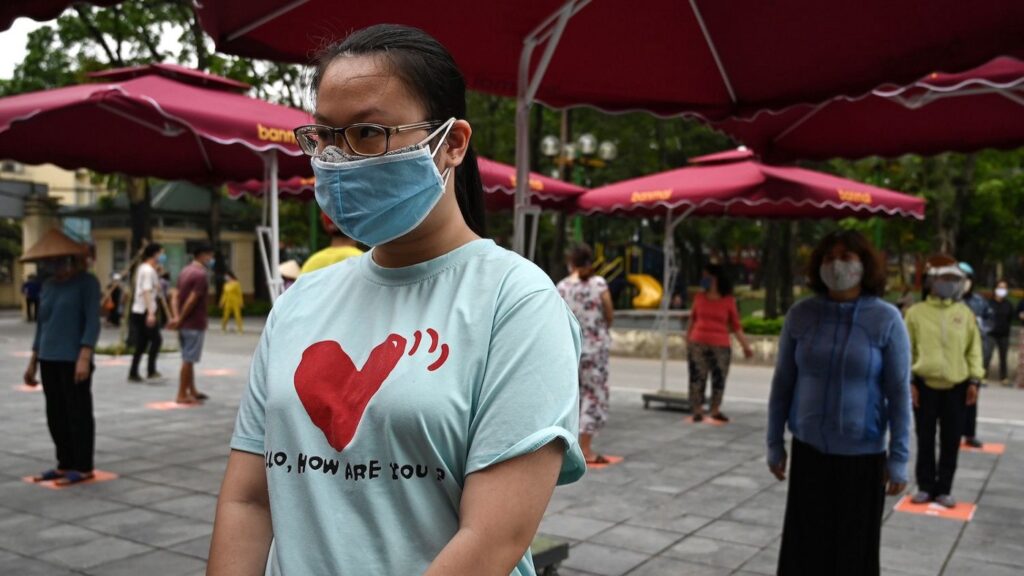
Waiting in Line for Free Rice in Hanoi
Being in a communist country, you see all the tropes including propaganda art strewn on the streets as well as red hammer and sickle flags waving in the wind and large bronze statues in ode to Vladimir Lenin. As an American, these things should strike fear straight into my very essence. I do admit they did make me very apprehensive and skittish when I first arrived here 7 months ago. But as I learn more about the socialist ideals that Ho Chi Minh had for his war devastated country, I begin to understand that the goal is very noble one: to liberate the people from exploitation and economic slavery. Vietnam has implemented several socialist programs including price stabilization on medicine, rice, and electricity to name a few. In a time where people are profiteering on face masks and toilet paper in the US and fake news is rampant, Vietnam’s response was to crackdown on those things making them punishable with heavy fines.
The Solution Involves Unity
As I’m writing this, there is no end in sight for COVID-19 relief in lieu of a vaccine in the US. The daily number of cases still hasn’t peaked after 2 months. Due to the early and heavy restrictions in Vietnam there has been no new cases of community spread for the last 30 days and daily life has returned to normal inside the country. Though, for better or worse, there are still no international flights.
I’m not proposing that one system is better then the other all the time but in the face of a pandemic there is clearly a balance between individualism and collectivism that is optimal and Americans have become too stubborn and unwavering of their ideals to their own demise. And as the divide between Americans themselves grows larger and fiercer so does the divide between America and the rest of the world. When individualism comes at all costs and inhibits you from taking lessons from others, thats more like stupidity. The United States and the rest of the world must unite to fight corona.

